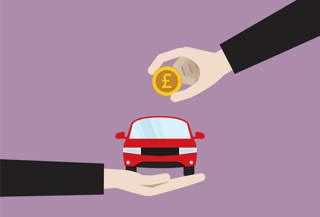New benefit-in-kind (BIK) rates, which will see the tax paid by employers and employees fall dramatically for the cleanest cars from 2020, have been labelled “ludicrous”.
The BIK rate for a pure EV currently stands at 7% for 2016/17, rising to 9% in 2017/18, 13% in 2018/19 and 16% in 2019/20.
However, changes announced in the autumn statement and confirmed in the Finance Bill show that in 2020/21 the BIK rate falls from 16% to just 2%.
It means a Nissan Leaf company car driver in 2019/20 would pay £991 in BIK as a 20% tax payer, but the following year would see that fall to £123.90.
Employers would also gain, with Class 1A NICs (national insurance contributions) recording a similarly dramatic fall, from £684 in 2019/20 to £85 in 2020/21.
“It’s just ludicrous,” said David Hosking, CEO of Tusker, the leasing company. “If you really want to encourage the take-up of zero emission cars do it in April (2017).”
The changes will see 15 new BIK bandings introduced, of which 11 will be for ULEVs. From 2020, the appropriate percentages for zero emission cars will drop from 16% to 2%, while there will be five new bands for cars with CO2 emissions between 1g/km and 50g/km based on the zero emission miles capability of the vehicle.
The new bands and BIK percentage rates are: 14% for a car with less than 30 zero emission miles capability, 12% for 30 to 39 miles, 8% for 40 to 69 miles, 5% for 70 to 129 miles, and 2% for greater than 130 miles.
It means a Mitsubishi Outlander PHEV, with a zero emission miles capability of 32 miles, would pay 12% BIK in 2020/21.
However, with new vehicle emissions tests introduced from next year, hybrid vehicles could see the number of zero emission miles they currently achieve fall due to the tougher regime.
The Government is also introducing nine new bands in the 51-94g/km range in 5g/km steps, with a company car with CO2 emissions of 51-54g/km attracting 15% BIK, increasing by one percentage point per band up to 23% for a car with emissions of 90-94g/km.
All existing bands above 95g/km will be retained up to a maximum of 37% as well as the 3% diesel supplement. The ‘appropriate percentage’ will be raised by one percentage point on all bands above 90g/km in comparison to 2019-20 rates.
Despite the much more beneficial tax rates for ultra-low emission vehicles (ULEVs), Treasury documents suggest that the new regime will raise an additional £25 million for the Exchequer in 2020/21 and a further £5m in 2021/22.
The British Vehicle Rental and Leasing Association (BVRLA) believes the new bandings will create a much greater incentive for employers and employees to choose the cleanest electric and hybrid cars.
However, BVRLA chief executive Gerry Keaney said: “These decisions are pragmatic, cost-conscious ones and we are concerned they may be deferred until the incentives come into effect.
“The ULEV market could suffer in the meantime as company car tax costs rise significantly between now and 2019. We will continue to push the Government to introduce green incentives that work now rather than later.”
Mike Moore, tax director at Deloitte, was also concerned that the new company car tax regime did not include an incentive for how hybrids are used on the road.
“HMRC publishing advisory mileage rates for hybrids in conjunction with the new measures would help in ensuring drivers use the car in the optimal environmentally friendly way,” he said.
The Government’s desire to further drive the adoption of plug-in vehicles was reflected elsewhere in the autumn statement.
Chancellor Philip Hammond also announced the Government would invest a further £390m by 2020-21 to support ULEVs, renewable fuels, and connected and autonomous vehicles (CAVs).
This includes £80m for ULEV charging infrastructure, £150m in support for low emission buses and taxis and £20m for the development of alternative aviation and heavy goods vehicle fuels.
The Government will also offer 100% first-year allowances to companies investing in charge-points for electric vehicles up to the end of March 2019.























Login to comment
Comments
No comments have been made yet.